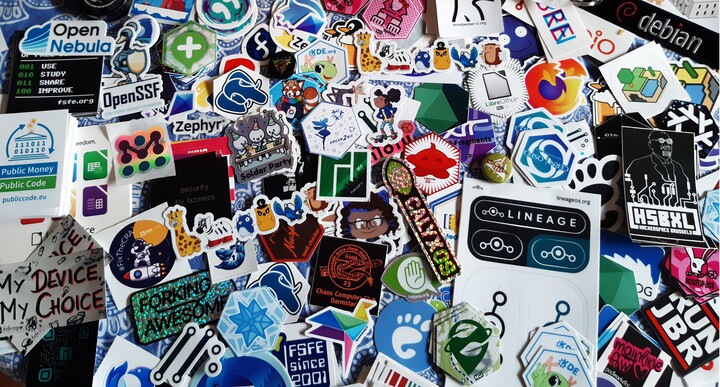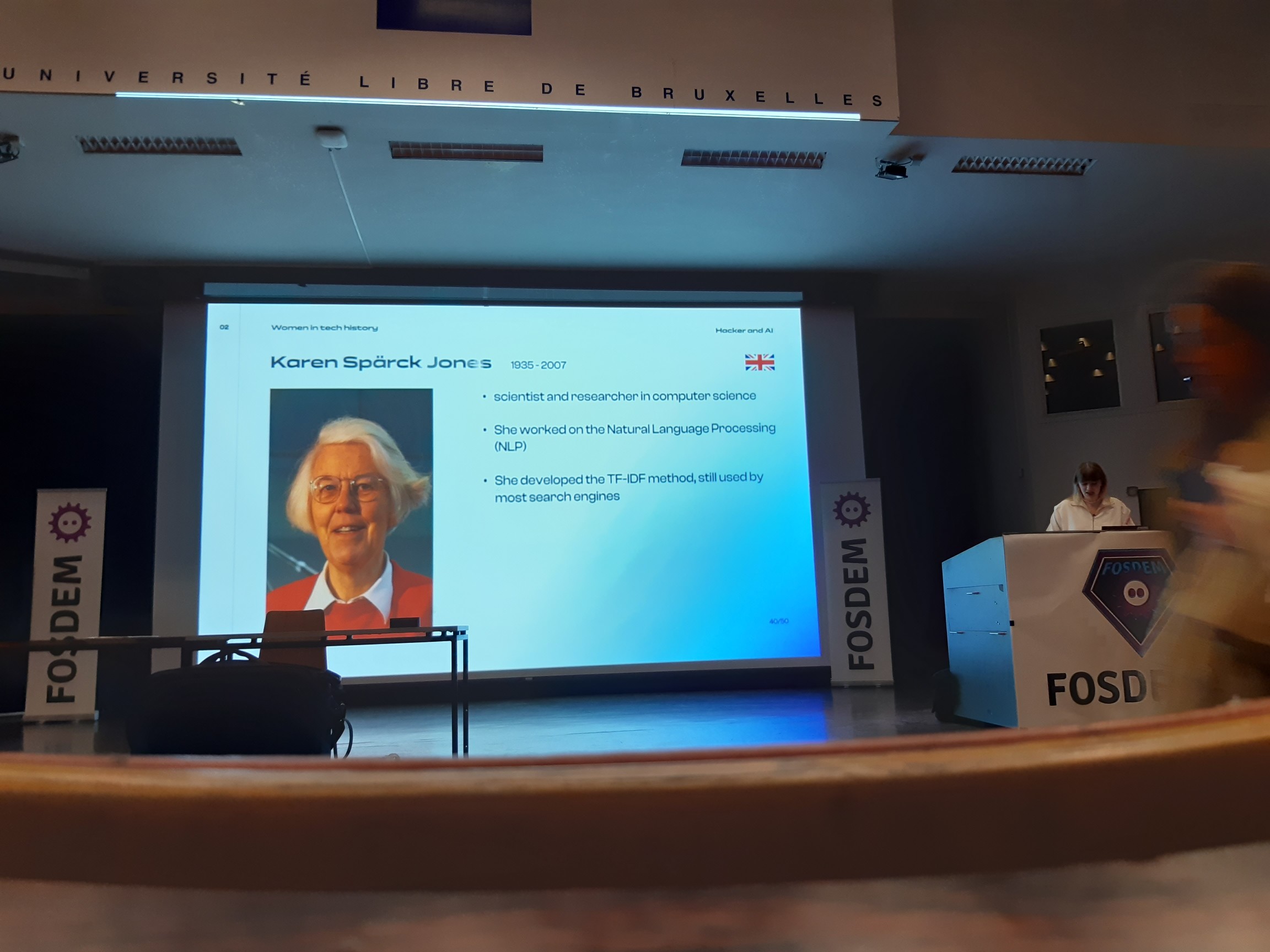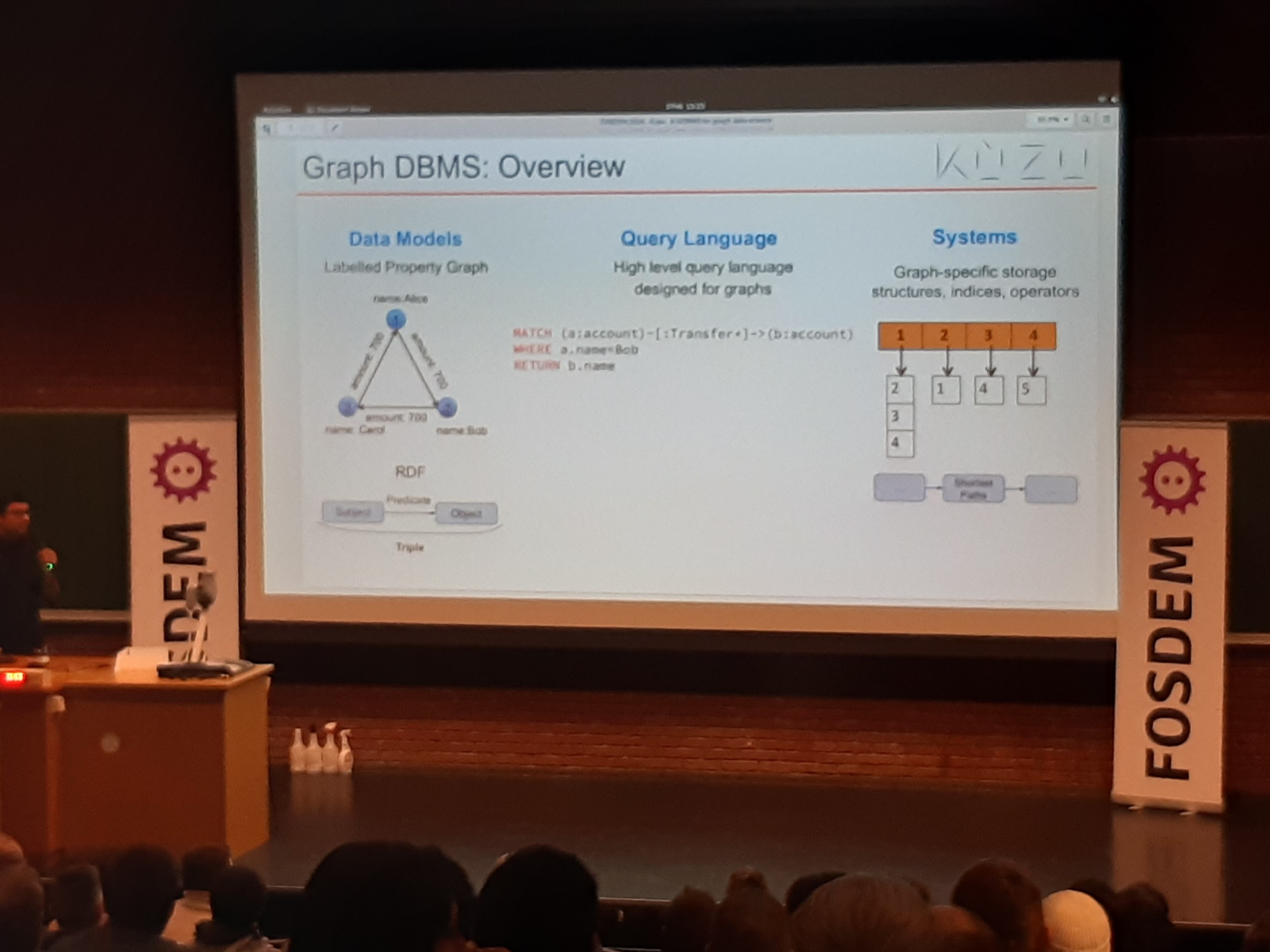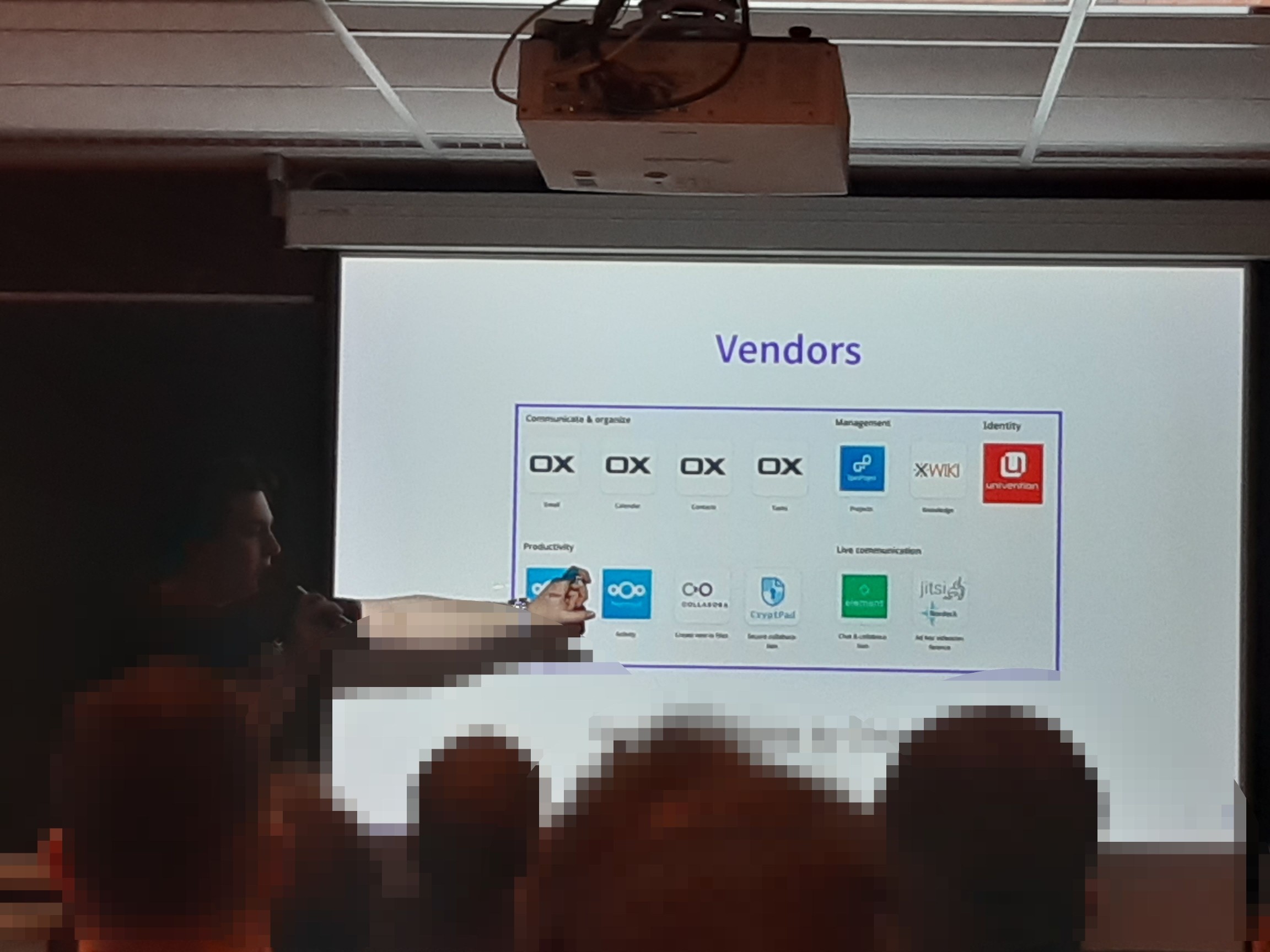
computing is too important to be left to men
🕊️ since 2019 i’ve been going to fosdem, it’s become part of the year, the part that gives hope for the future. hackers love a tribal gathering, and at around 10K strong, fosdem is the mother of all tribal gatherings. in terms of scale, chaos congress might give it a run for its money, but the fosdem organisers consistently claim the title of world’s biggest foss conference.
🚀 the event has grown beyond the university space over the last quarter-century, and so on arriving in brussels, the first thing myself and my fellow travellers did was visit one of the increasing number of fringe events. our first “ofdem” experience was a matrix gathering held at the brussels hackerspace in a disused medicine factory in anderlecht. there we enjoyed our first taste of club mate (rocketfuel for berliners). as newbies we were recommended to try the granat flavour, and reminded we were enjoying the hospitality of the matrix foundation. We then joined the openDesk huddle where it was announced that matrix was part of the project, with joint support from the french and german governments in building a sovereign workplace for public servants. i was instantly besotted, but better still, they mentioned there was going to be a live demo, and a live demo is the sort of thing that can elevate a plain old presentation to the level of performance art.
🏭 after eventually finding our way out of the soon-to-be-demolished medicine factory, we retired to our neat aparthotel, and watched a bit of euronews. this mostly consisted of angry farmers, but on one chat show the presenter referred to brexit as “the british throwing themselves into oblivion”… i must admit the passport stamping queue at st pancras had felt a bit like oblivion, it's such a tiny area that eurostar employs ushers to cajole the crowd through and into every available nook and cranny between security and the departure lounge, all whilst trying to keep their trousers on!
🚋 next morning, we headed to Solbosch and after much palava found ourselves on a busy No. 8 tram towards Roodebeek. It didn’t escape my attention that a lot of men with tousled locks and sensible clothes alighted at ULB. and so it was that we joined the hordes streaming into campus with stickers being handed out on arrival. yes, we had arrived in stickerland!
📢 we headed directly to janson for our first keynote “where have the women of tech history gone” to learn about various big names including karen spark jones, who worked on search and coined the slogan “computing is too important to be left to men.” we also learned that following the advent of the personal computer in the early eighties, “coding” stopped being a job regularly performed by women running mainframes, and morphed into “programming” - something that happened in boys’ bedrooms. on returning to work i mentioned this to some colleagues, one of whom, as a school leaver, used to write mainframe code in cobol for factory picking and packing lists and payroll systems. i was recommended to watch the movie Hidden Figures about the women who computed the apollo space programme.
⚧️ as the self-proclaimed home of foss, how is fosdem going to ensure that it is not left to men? I saw a few toots despairing about the male dominance of the event. hopefully more ways of closing the gender gap are coming.

⚡ after that we quenched our newfound thirst for club mate, and went to a lovely lightning talk about kuzudb, a natty graph equivalent to sqlite. the speaker gave a nice clear explanation of graph databases, including a breakdown of the two main structures involved, nodes/edges and subject/predicate/object triple. i must admit that graph query languages like sparql and cypher still leave me a bit cold, but totally agree that in linked data it is the relation in which the meaning is held, so expressing that within a database is a truly valid pursuit, and will be looking for opportunities to use kuzudb for querying relationships.

🤗 next up openDesk. we squeezed into a tiny room for what ended up feeling like an absolutely gigantic talk about digital sovereignty for public servants! the session was run by contributors from two of the projects making up the ecosystem: xwiki and openProject. the story goes that the french and german governments are now investigating the idea of a sovereign workplace, that is, office applications for the public sector that retain the work of those applications within the sovereign legal jurisprudence.
🌍 as well as implementing geopolitically correct data management (no extraterritoriality), a beauty of openDesk is that it is benefits from deverticalisation: integration within the software ecosystem is organised by open standards.
⚛️ …deverticalisation helps openDesk be supplier and technology agnostic. integration takes place across different open source products, with supporting investment from the public sector. integration between elements in the ecosystem is organised horizontally, and being open, raises the tantalising possibility that the software underpinning democratic institutions might itself be democratic, transparent, accountable.

🎬 …then there was the demo (runs from 20 minutes in) and sure enough, it elicited a glowing response from the crowd and the mood in the room became quite elevated!
🤩 the level of free-spirit involved in openDesk will be enough to see me through the better part of the coming year, and whilst the future success of this very exciting project is not yet certain, it is truly heartwarming to see public services democratising software and generating a sustainable foss business model.
🗺️ as has been the case since lockdown, there was no open geospatial room, but edward was there and we had a nice talk about the possibilities for next year; let’s hope that there will be be some way for the open geospatial hackers to congregate at fosdem 2025.
🏰 sunday was a bit of a blur for me. i continue to get horribly lost in building U, the insides of which resemble scenes from the imagination of m.c. escher. for this reason i totally missed the python room, although we did unsuccessfully attempt to gatecrash a jupyter session, only to have to escape by tip-toeing down a stairway at the back of the auditorium. the stairs turned out to the ancient, wooden, and very creaky!
🌠 as per usual, i had a lot of fun in the hallway stickerlands. my personal highlight was meeting the hacker behind lineage os, a beautiful android distro, free from spyware. following a conversation about my hopes to get it working on some of the more questionable devices in my household, a gorgeous sticker was fished out from under the desk (you can see it in the header) - i have happily run lineage for years and was proper chuffed to meet its maker.
🎭 not only is fosdem now so big it has a fringe, it also emanates satellite shows around europe. these events draw in the same customers and suppliers that have travelled from far and wide to be in brussels. one of these affairs is a relatively new british conference: state of open, now in its second year. unlike fosdem it’s not an open event (oh the irony) but i humiliatingly begged my way in. i was curious to see how the open scene is faring in britain. the first thing i noticed was that in contrast to fosdem, which is now a little circumspect in how it acknowledges the patronage of its big scary backers, it felt like every available photo-op at soocon was plastered with big scary branding. the paradox of an “open” conference having such a strong reputational reflex for closed shops made for an uncanny ambience. the second thing i noticed, and again in contrast to fosdem, was that whenever a.i. was mentioned during talks in brussels, the audience would spontaneously start giggling, whereas in london, a.i. had its own basement!
🚪 the hallway track was fun, various exhibitors had traipsed over from belgium, and i had a lovely chat with the folks from percona, sadly the yonk is no longer on the team, but they really are a great side and know a lot about containers. i doubt i’ll ever work with them, but imagine they would make for a lovely supplier. one of their team is from bruges and gave me some sage advice in the delicate matter of how to enjoy drinks from de halve maan, principally straffe hendrik quad. hendrik is a fine and mighty beer, but it is also the spinal tap of beers as the alcohol goes up to eleven. the sage advice on how to enjoy hendrik is really very simple: it’s a towards the end of the day kind of a potion… the public code team from amsterdam were also in attendance, fresh from their five-minute lightning talk mega-bash in building AW at fosdem. I did question the thinking behind their quickfire format, and they replied that it’s just long enough to break the ice and prompt further discussion post-talk. they also showed me their governance card game, which i’m keen to play, and promoted their standard for public services codebases. there’s a lot to like in their work, although they are easily confused with the equally valuable public money public code campaign from germany. freebsd were there too, and i ended up giving them one of my prized “run bsd, stop fascism” stickers, which they were a little surprised by, but enjoyed nonetheless. i guess the term might date back to the unix wars, but i do struggle to see what bsd has to do with anti-fascism. in any case, one of my fave fosdem talks was about how netflix track the main branch of freebsd on their cdn machines. i also got a suse chameleon which was nice, normally i stick to stickers, but a suse chameleon is fine swag. the team from cert manager also seemed like they might be a nice team to work with, so if i ever have to manage a load of letsencrypt certificates, i would certainly try their software. in a moment of weakness, i let some pen testers scan my lanyard and have now started receiving sales emails, oops! there was certainly a lot of cloud native stuff going on in there which isn’t my field admittedly, but i’m bemused by the explosion of incidental tooling in fields like cloud and frontend. imagine my relief when i heard that jack from opendata.scot is offloading cloud time onto a raspberry pi.
💥 despite some misgivings, it was encouraging to see the event giving decent attention to open data and open standards as well as code. I was especially chuffed that there were some great public service talks, with salman from richmond and wandsworth councils helping out during this time of great inequality, and jack from opendata.scot continuously integrating and deploying a 2K+ dataset pipeline. as for the event, hopefully it can become as open in nature as it is in name - it would have been lovely to have taken a group of data practitioners down there.
🕊️ fosdem, while bursting at the seams with men, continues to provide hope for hackers, and a tantalising glimpse into a world where software runs free!
